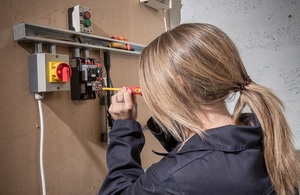Establishing the principles necessary for transparent, functioning voluntary carbon markets,
Friends, the clock is ticking down on the climate crisis.
We are running out of time to protect our precious planet from its worst effects, and to keep the goals of the Paris Agreement within reach.
To keep 1.5 degrees alive, as the UK COP26 Presidency is determined to do, we must halve global emissions by 2030.
And that means everyone playing their part – governments, investors, civil society and business.
Alongside companies setting science-based targets to cut emissions to net zero, and building resilience, voluntary carbon markets can play a vital role, enabling us to do more.
A voluntary carbon market with integrity can incentivise emissions reductions, and it can encourage technology innovation, and promote reforestation.
And it can raise finance, fast, getting funds to emerging markets and to nature-based solutions, including forest protection.
This of course is invaluable.
Because without finance, the task ahead is near impossible.
But integrity is the watch word.
With less than a decade to keep 1.5 alive, there is simply no room for greenwashing.
The era of carbon offsetting delaying meaningful climate action is over.
We need transparent, reliable markets playing a role in robust emissions reduction strategies, supporting companies to deliver, providing confidence to consumers and investors, and keeping 1.5 degrees alive.
That is why the work of the Voluntary Carbon Markets Integrity Initiative, working alongside private sector initiatives, is so important.
And why the UK Government is proud to support it.
But it will only succeed with your help.
So I urge all governments, businesses, civil society organisations and Indigenous Peoples listening to engage as fully as possible with the VCMI’s work.
Help to establish the principles necessary for transparent, functioning voluntary carbon markets, for it to be presented at COP26.
Together, let’s build our resilience, drive down global emissions, and keep 1.5 degrees alive.
ENDS

